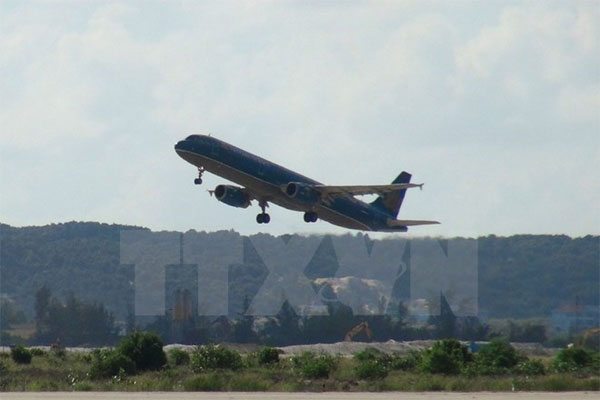VietNamNet Bridge – While the case of the Vietnamese-American passenger dragged off a United Airlines flight in the US last month resonated around the world, another incident of physical violence at an airport, this time in Viet Nam, highlighted the sometimes complex relationships between air passengers and crew.

|
|
|
It happened at HCM City’s Tan Son Nhat Airport a few weeks ago, when an airline ground agent refused to allow a passenger to check in to a flight to Da Nang 14 minutes after the counters had closed. In response, the passenger delivered a mighty slap to her face.
In accordance with regulations, Vietnamese airlines close their flight check-in 40 minutes before departure for domestic flights and 50 for international ones. Whether the aggressive passenger was late due to objective reasons or because he was ignorant of the check-in rules, the airline had the right to refuse his boarding. It even offered him another flight on the next day.
But this is not an isolated incident of flight attendants and ground staff facing hostile passengers.
In early April, a woman boarded a flight from HCM City to Ha Noi, complaining loudly that the gate had been changed at the last minute and she had almost missed the flight. She continued arguing with the flight attendants and passengers even after receiving explanations for the change, and was eventually taken off the plane.
Vietnamese airline passengers are not known as the most obedient of travellers. Their carry-on luggage very often exceeds the allowed weight, many use electronic devices on board despite instructions to the contrary. Then there are those who try to open the emergency exit doors when the plane lands, in a rush to get out, or citing a desire for fresh air. And in more than one instance, a parent has directed a child to pee into the airsickness bag in the pocket in front of them.
While sometimes amusing, such actions - often attributed to the ignorance of first-time flyers - can pose safety hazards, delay flights and disrupt airport traffic.
Sadly, such examples have also been recorded when Vietnamese passengers travel abroad on foreign carriers, not creating a very good impression of the country’s citizens.
Passengers creating disturbances at airports or on planes are usually fined, and even subjected sometimes to a temporary travel ban, but these - fines up to VND20million (US$889) and a three to 12-month travel ban - may be too lenient.
Lawyer Pham Thanh Binh, in an interview with Viet Nam Television, said punishment must be stiffened to VND50-100 million ($2,225-4,450) and up to a 24-month ban. Under Philippines law, anyone convicted of assaulting a flight attendant can be sent to jail for three years and/or fined up to 500,000 pesos ($10,500).
How-to manuals
Associate Professor Trinh Hoa Binh, deputy general secretary of the Viet Nam’s Sociology Association, blames the impolite behavior in public places on selfishness and lack of respect for others.
Dinh Viet Son, deputy head of Viet Nam’s Civil Aviation Administration, says that in developed countries, passengers usually pay attention to electronic boards, and follow signs and instructions at airports. Vietnamese people often come to ask staff first, most being too lazy to find information by themselves.
Air travel used to be restricted to business people or those with means. Nowadays, almost everyone can afford to fly, given the abundance of low-cost airlines and promotional tickets and deals. This makes it all the more important for would-be passengers to familiarise themselves with air safety regulations, instructions on check-in, boarding time, luggage weight, etc. These are available at any airport or on airline websites.
The Civil Aviation Administration issued a handbook for passengers last year, including details on what to do before a flight, arrival, departure and customs procedures, special services and recommendations for passengers’ health. These handbooks should be made more accessible through free distribution at airports and buses to airports, and lively illustrations with simple instructions.
But while passengers must learn to behave, airlines - whether low or full cost - must set service quality and on-time departures and arrivals as top priorities.
Khanh Duong
VNS
| related news |